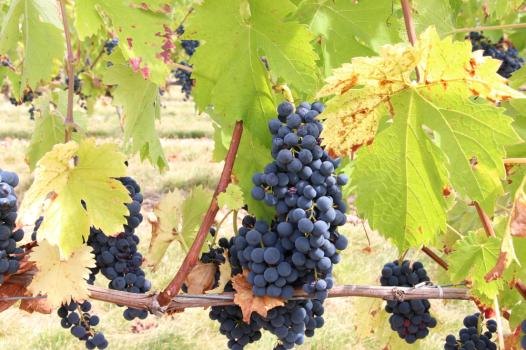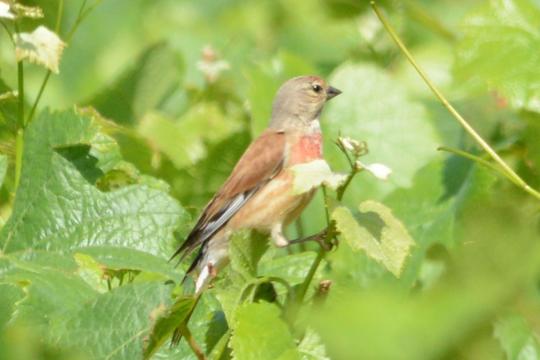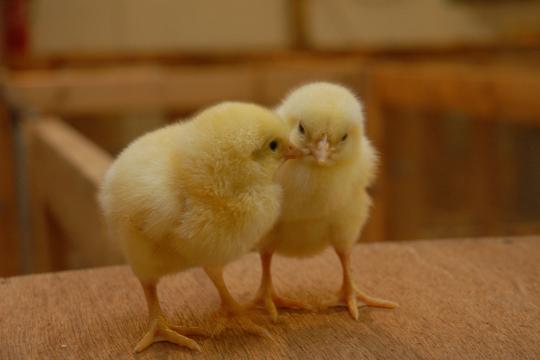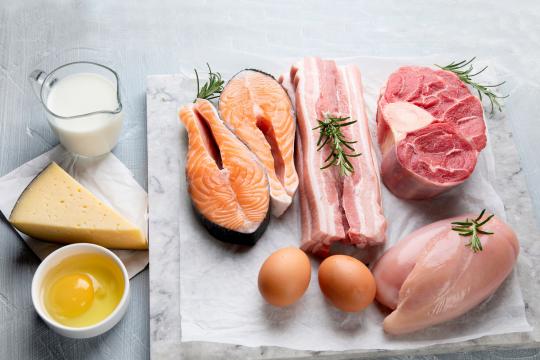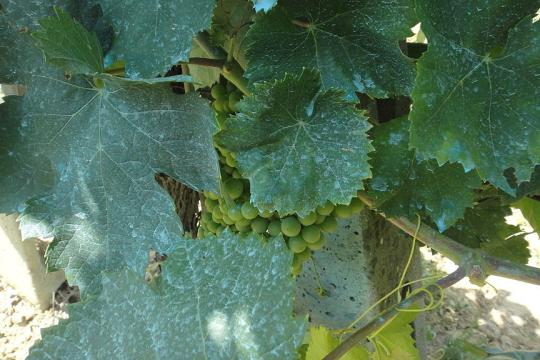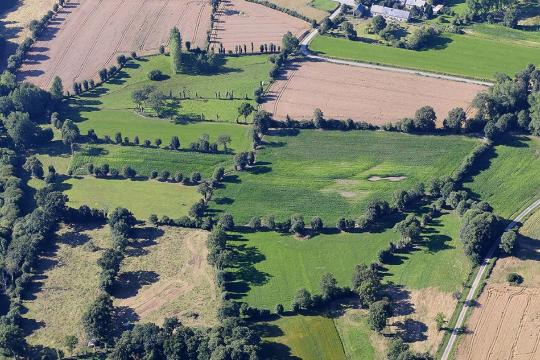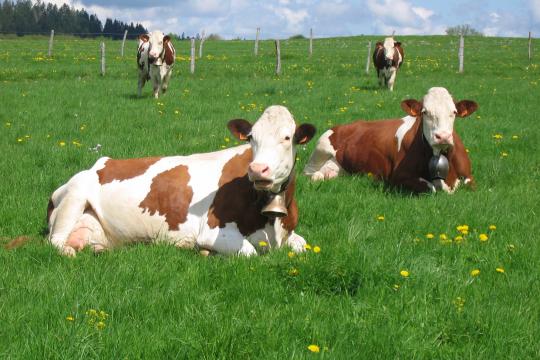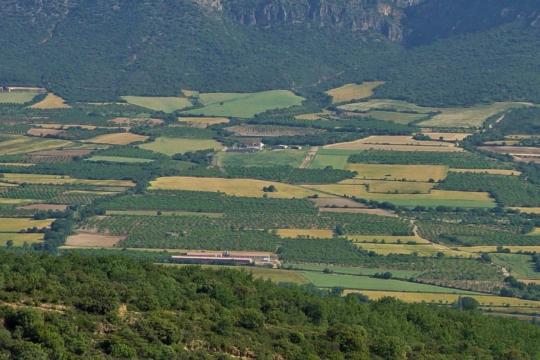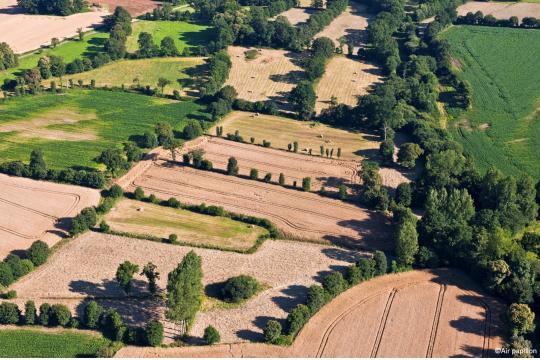Organic farming: from niche to norm?
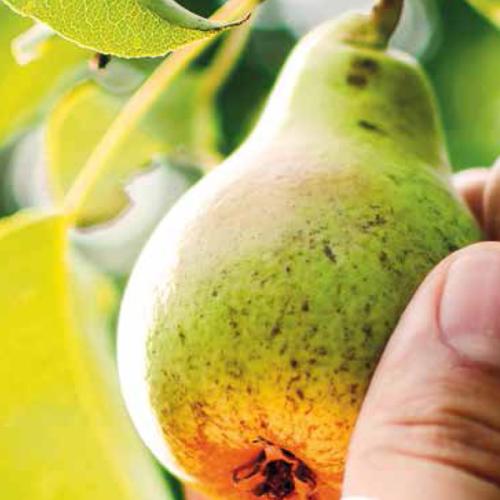
Consumer appetite for organically-farmed products continues to grow – organic goods have now made their way into the lives of more than nine in ten French consumers, a 2020 survey by Agence bio tells us. Meanwhile, the number of farms using organic production methods in France now exceeds 50,000, generating more than 200,000 jobs. Organic farming’s share of the total cultivated area in France has doubled in five years to 9.5%, encouraged by government policies to stimulate the sector’s growth and take us towards the EU goal of 25% of agricultural land under organic production by 2030.
Organic farming’s escape from niche status has far-reaching ramifications, provoking fresh economic, technical and societal questions on how best to support and foster this change. INRAE is at the forefront of research on these issues.
A future where organic goods are the dominant offer? The Institute’s METABIO metaprogramme is a vast cross-disciplinary research programme that is examining the issues, levers and consequences for France should such a radical and large-scale transformation of the agrifood system become a reality.
With a strong track record in research on organic farming going back to the 1980s and with 17 experimental organic sites currently in operation, INRAE has topped the world league tables for published research on this subject for the past five years.
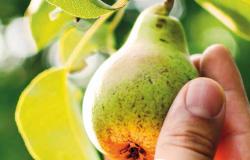
While the European Union is committed to devoting at least 25% of agricultural land to organic farming by 2030, how can we support the change in scale of this production? How to move to 50% or even more organic world production tomorrow? At INRAE, organic farming has long been a subject of research.
Field to fork: health and quality
Improving global health while seeking out alternatives to synthetic fertilisers
The current health crisis is a stark reminder that human health is bound up with that of agricultural systems – encompassing soils, plants and animals. Given the complexity of the interactions involved, it is imperative that we consider the system in its entirety. INRAE’s scientists are doing precisely this, carrying out interdisciplinary research that combines biology, ecology, agronomy, economics and the social sciences. Their investigations trace problems back to their root causes, enabling them to identify levers that will be effective across the whole system, from production to transformation. They can thus improve the overall health of agrifood systems while seeking out the alternatives to synthetic farming inputs that are a central principle of organic farming.
Example
Transitions towards organic farming: unlocking new pathways
The keyword for transition is ‘diversity’ – at every level
Organic farming has taken off, propelled by multiple drivers that include farmers, consumers, civil society and public policy makers, all seeking to change the way we produce and consume crops and livestock. This is transforming how the food sector operates and is changing the face of farming. A far cry from the extremes of specialisation witnessed in the past few decades, the keyword for agricultural transition has now become ‘diversity’ – at every level: on the ground, on farms, across landscapes and regions, but also in the pathways followed by farmers, systems and markets.
You can discover more here about the Institute’s research on organic farming, how our teams are working to describe and understand its diversity and to develop and adapt levers that are critical to the success of this major shift in the scale of organic farming.
Our organic farmers are also excellent at growing jobs
In France, organic farming on average creates more jobs than conventional agriculture when calculated by surface area or livestock numbers. This higher demand for labour does nevertheless vary according to the type of farm and local conditions. Thus, organic dairy farms, vineyards and cereal producers employ more workers than their conventional equivalents, while the workforce required in market gardening is the same in both systems.
A ceteris paribus (all else being equal) analysis of the relationship between organic farming and employment reveals two mechanisms at work. First, chemical inputs (fertilisers and pesticides) are replaced by plant nutrition provision and protection practices that are more labour intensive and second, organic businesses engage more in marketing and diversification. A useful extension to this analysis would be the inclusion of working conditions (quality of life, health at work) among the assessment indicators.
Looking for multi-performance from organic farming
A range of performances must be achieved
Expectations raised by organic farming are high and are putting its principles to the test. A range of performances must be achieved. Organic farming highlights the tensions that may appear between components of the environment, between profitability and social performance, and between productivity and quality. At INRAE, research has focused on these issues by investigating evaluation criteria and tools and by designing and assessing solutions, particularly in its experimental facilities, to combine these multiple performances.

